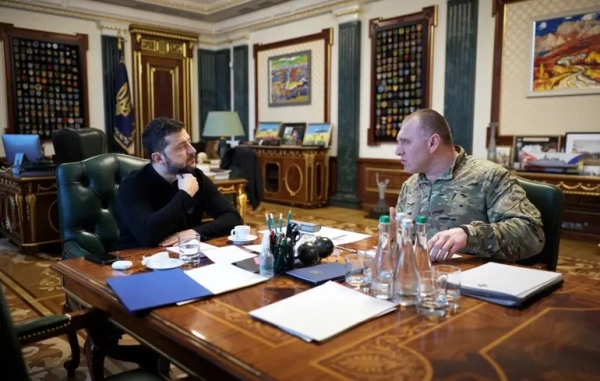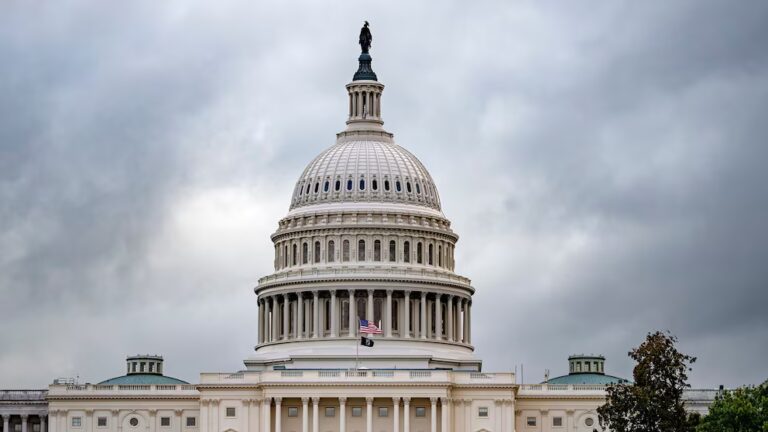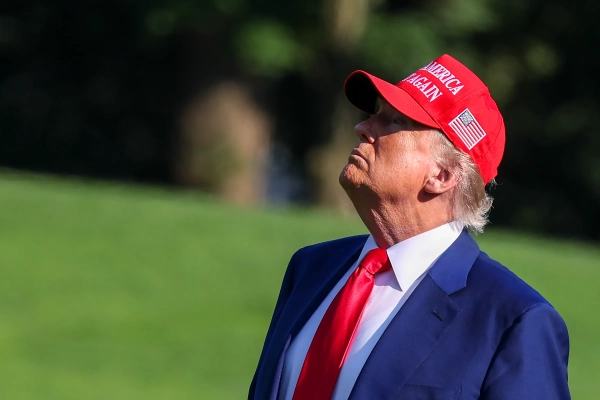Former President Donald Trump's legal defense in his Jan. 6 indictment appears to be taking shape, according to recent comments by his attorney John Lauro.
Lauro, in a media blitz on Sunday, raised multiple points of contention with special counsel Jack Smith's case, whose central allegation is that Trump engaged in a "criminal scheme" to overturn the results of his 2020 election loss and remain in power.
Trump pleaded not guilty on Thursday to four felony counts, including conspiracy to defraud the United States, conspiracy against rights and obstruction of an official proceeding.
Here is a closer look at what Lauro is saying in Trump's defense and what some outside legal experts make of the claims.
Trump lacked corrupt intent, Lauro says
Lauro contended on ABC's "This Week" on Sunday that the Justice Department "will never be able to prove beyond a reasonable doubt that President Trump had corrupt or criminal intent."
According to Lauro, that's because Trump steadfastly believed the election was stolen — a false view rejected by the courts and local elections officials — and he relied on advice from his counsel on how to proceed.
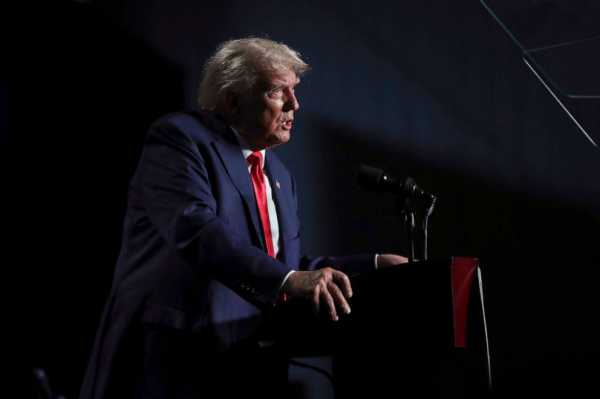
Former President Donald Trump speaks during the 56th annual Silver Elephant Gala in Columbia, S.C., Aug. 5, 2023.Artie Walker Jr./AP
Multiple experts have countered the issue of intent is more complicated than relying on a defendant's statement about his state of mind and that it is usually inferred or proven through circumstantial evidence. (Smith uses the term "knowingly" more than 30 times in the indictment against Trump.)
Randall Eliason, a law professor at George Washington University and a former assistant U.S. attorney, said the issue of intent goes beyond whether Trump simply thought he lost the election.
"Here's an example: I honestly believe my bank has ripped me off and stole my deposit money. That's a sincerely held belief, but it doesn't mean I could go to the bank and rob the bank. It's not an excuse," Randall said. "Just if you think your cause is righteous, that doesn't mean you have to break the law in response to try to fix it."
MORE: Criminal intent, free speech emerge as key issues in Trump's Jan. 6 indictment
Lauro: Indictment is a violation of free speech
Lauro repeatedly described the Justice Department's case as an "attack" on free speech and the constitutionally protected ability to "petition" the government for appropriate redress.
"President Trump believed in his heart of hearts that he had won that election and as any American citizen he had a right to speak out under the First Amendment," Lauro said on NBC's "Meet the Press."
On "This Week," Lauro made another First Amendment defense that Trump was simply asking then-Vice President Mike Pence to stop the certification of their defeat when Pence presided over the process on Jan. 6, in a ceremonial role.
"You're allowed to petition your government for a redress of grievances. A president is even allowed to petition his vice president. That has never been criminalized before," Lauro maintained.
The indictment made clear that Trump had a right to speak publicly about the election and to make false claims about fraud. It also noted that Trump took his case to the courts in dozens of lawsuits alleging fraud or irregularities and lost.
Multiple experts are dubious that a First Amendment defense will hold water in court given that Trump is accused of engaging in a broader criminal conspiracy (which include actions as well as speech) to subvert the 2020 election.
Prosecutors said in Trump's indictment that his alleged conspiracy included tapping a slate of so-called "fake electors" in several states; pressuring the Justice Department to launch "sham election crime investigations"; leaning on Pence to "alter the election results"; and repeating claims of voter fraud that Trump had already been told were unfounded to create a national atmosphere of mistrust.
"There is no general First Amendment shield against criminal liability," said Aziz Huq, a professor of law at the University of Chicago. Huq noted speech used in furtherance of a crime is generally not protected.
"That is, speech can be part of a criminal offense defined in a federal or state law," Huq added. "Indeed, this is quite common — for example, threats or fraud."
Constitutional debate is not a crime, Lauro says
Speaking with ABC anchor George Stephanopoulos on "This Week," Lauro likened Trump's conversations about the 2020 election results leading up to Jan. 6 to constitutional discussions, which are "not criminal cases."
"People disagree all the time about constitutional points, but nobody gets indicted," Lauro said.
Michael Dorf, a constitutional law expert at Cornell Law School, countered that Trump is not charged with "simply misunderstanding the Constitution."
"The core of the indictment, as I understand it, is not simply that the president was urging followers to make bad arguments but that he was taking advantage of and creating circumstances that would actually obstruct the government from performing its basic function," Dorf said.
Lauro claim Pence was asked to 'pause' electoral count is disputed by Pence
A key element to Trump's alleged election interference conspiracy, according to prosecutors, was his pressure on Pence to block the congressional certification of President Joe Biden's victory.
Lauro argued instead that Trump was merely asking Pence to "pause" the certification for 10 days, to give state legislatures more time to weigh in.
Pence himself has rejected that assertion, stating he was being asked to "overturn the election."
MORE: Pence: 'No plans to testify' at Trump's Jan. 6 trial but would 'comply with the law'
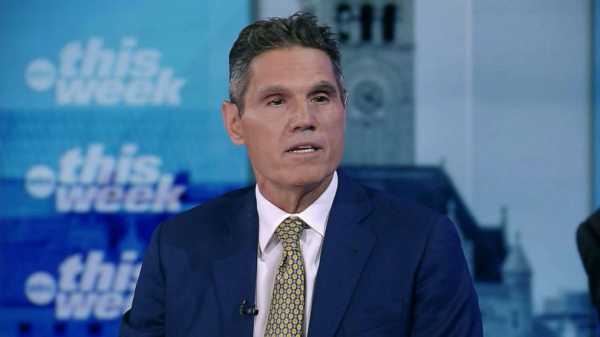
Attorney for former President Donald Trump, John Lauro, speaks to ABC’s George Stephanopoulos on Aug. 6, 2023, in Washington, D.C.ABC News
Dorf said he didn't believe Lauro's argument was "a distinction that makes a difference."
"If the idea was that the purpose of the pause would be to send the election back to the states, where the hope was that he would be able to pressure people to act on false claims of election fraud, it's still one of the steps of this alleged illegal scheme," Dorf said.
Lauro: Trump is immune from prosecution
Lauro said on CBS' "Face the Nation" that Trump's attorneys plan to file a motion to dismiss based on "the fact that President Trump is immune as president from being prosecuted in this way."
Lauro claimed that Trump should be shielded from criminal liability because he was acting in his official capacity as president when the alleged felonies occurred.
But Huq and other legal scholars were skeptical of this view.
"I don't think there's an argument there, based upon either practice or the original understanding of the Constitution or the way that the Constitution is structured," Huq said.
Washington lacks impartial jury, Lauro says
Lauro also said that Trump's attorneys will seek to change venues for the trial, vying for West Virginia, because, he argued, any jury selection in liberal-leaning Washington would be prejudiced against the former president.
U.S. District Judge Tanya Chutkan, who has been assigned Trump's case, has previously weighed in on this issue with a defendant charged in connection with the Jan. 6 attack on the Capitol.
"Jurors' political leanings are not, by themselves, evidence that those jurors cannot fairly and impartially consider the evidence presented and apply the law as instructed by the court," Chutkan ruled last year.
Sourse: abcnews.go.com
